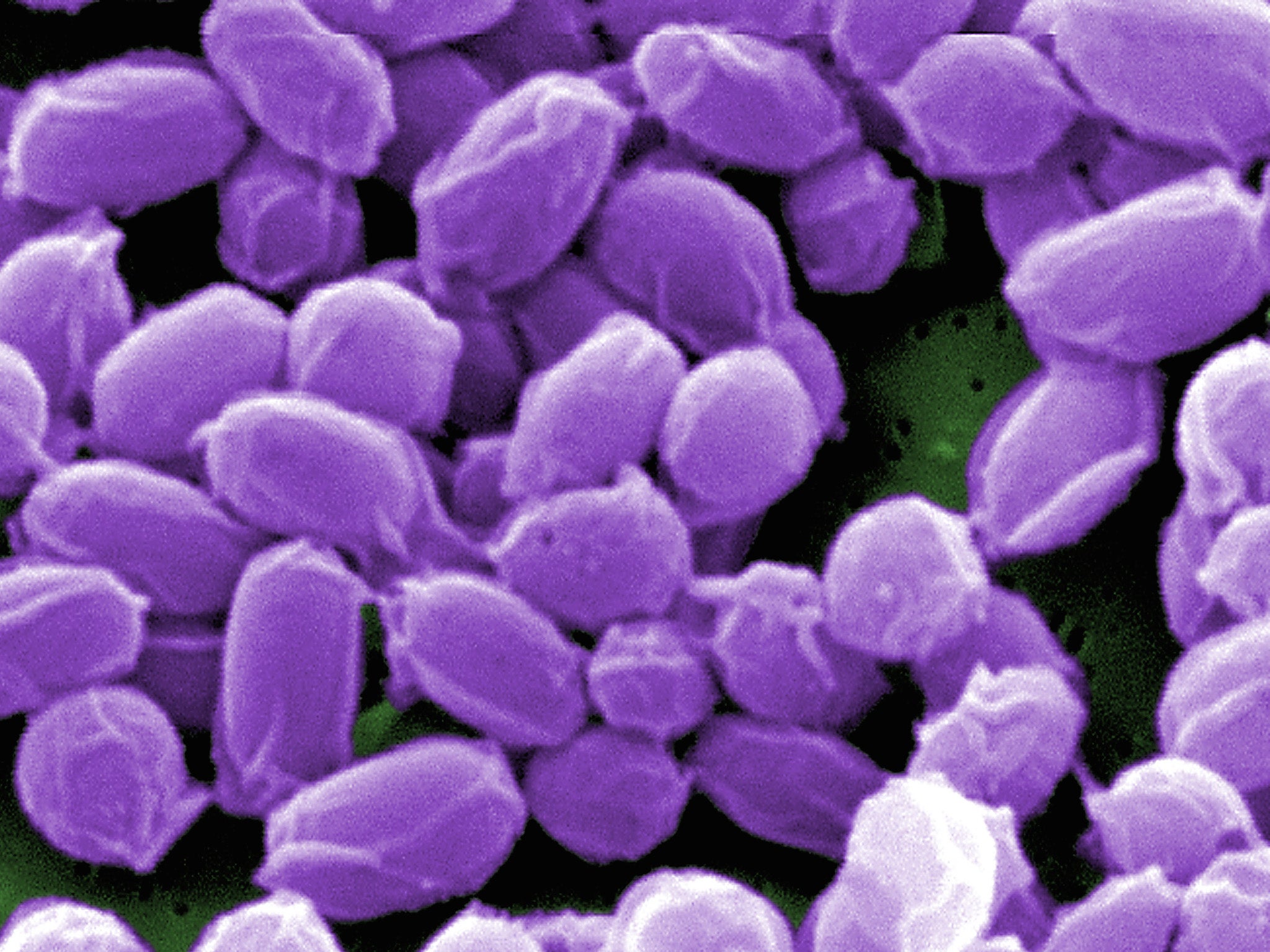North Korea could produce 'military-size batches of anthrax' at pesticide factory, researcher claims
Pyongyang denies that it is manufacturing anything other than pesticides at the Pyongyang Bio-technical Institute, recently visited by Kim Jong-un

Your support helps us to tell the story
From reproductive rights to climate change to Big Tech, The Independent is on the ground when the story is developing. Whether it's investigating the financials of Elon Musk's pro-Trump PAC or producing our latest documentary, 'The A Word', which shines a light on the American women fighting for reproductive rights, we know how important it is to parse out the facts from the messaging.
At such a critical moment in US history, we need reporters on the ground. Your donation allows us to keep sending journalists to speak to both sides of the story.
The Independent is trusted by Americans across the entire political spectrum. And unlike many other quality news outlets, we choose not to lock Americans out of our reporting and analysis with paywalls. We believe quality journalism should be available to everyone, paid for by those who can afford it.
Your support makes all the difference.A North Korean pesticide factory could be used to produce “military-size batches of anthrax”, a US researcher has claimed.
Melissa Hanham analysed photos of Kim Jong-un’s visit to the Pyongyang Bio-technical Institute to claim that it contained equipment banned under international controls to prevent the spread of biological weapons.
She claimed they showed incubators, colony counters, a centrifuge, fermenters and a spray dryer that could be used to produce a harmless pesticide, as Pyongyang claims, but could also manufacture anthrax.

The causative agent in the deadly toxin is bacillus anthracis, which Ms Hanham describes as a “cousin” of the bacillus thuringiensis supposedly shown to the Supreme Leader during his visit to the Pyongyang Bio-technical Institute.
Ms Hanham, a senior research associate at the James Martin Center for Nonproliferation Studies in California, claimed on its website that the publication of the photos in June made “North Korea’s biological weapons programme a lot less secret”.
“The modern equipment seen in the images reveal that North Korea is not only maintaining a biological weapons capability, but also has an active large-scale sanctions busting effort to illicitly procure the equipment for the Pyongyang Bio-technical Institute,” she wrote.
“This effort runs counter to international treaties, regimes and national laws that aim to prevent the spread of biological weapons, the equipment and chemicals used to make them and their means of delivery.”
Her study was published in full on the website 38 North, where she noted that biological weapons facilities are “notoriously difficult to identify” because they can operate for both civilian and military uses, as seen in the Soviet Union and Iraq.
“Given North Korea’s known history and interest in biological weapons, it is hard to avoid the conclusion that the Institute is intended to produce military-size batches of anthrax,” Ms Hanham wrote.
“The bottom line is that regardless of whether the equipment is being used to produce anthrax today, it could in the near future.”
Kim’s visit came days after news that the US military shipped live anthrax to laboratories in nine states, Britain and the Osan Air Base in South Korea.

Widely considered an embarrassing accident, North Korea treated it as a threat denounced by state media as “preparations for germ warfare against Koreans”.
The state-controlled Korean Central News Agency (KCNA) dismissed Ms Hanham’s study on Monday, when it invited every member of the US Congress to inspect the Pyongyang Bio-Technical Institute.
“Come here right now, with all the 535 members of the House of Representatives and the Senate as well as the imbecile secretaries and deputy secretaries of the government who have made their voices hoarse screaming for new sanctions,” KCNA quoted a spokesperson for the National Defense Commission as saying.
The release claimed the “US and its followers are painting a wrong picture” of the facility, which it described as “a centre for scientific study and production”.
KCNA said the pesticides produced there aim to kill ticks and other insects that harm crops and carried a quote from the “Policy Department of the DPRK National Defence Commission” denouncing US “hysteria”.
The quote continued: “The south Korean puppet forces, sheltering in doghouses of the US, are fated to exist only when they bark at its prodding as they live on the crusts of bread thrown by it.
“Intrigues and fabrications against justice and truth are nothing but death-bed frenzy of those whose days are numbered and their last-ditch efforts…Those who try to tarnish the image of the DPRK by going against the requirements of the times, challenging the aspiration of the nation and standing against justice and truth will have to pay a high price for their crimes.”
Bacillus anthracis could be used as a biological weapon by releasing the deadly spores into the air, food or water, spreading deadly anthrax disease across a wide area.
Join our commenting forum
Join thought-provoking conversations, follow other Independent readers and see their replies
Comments